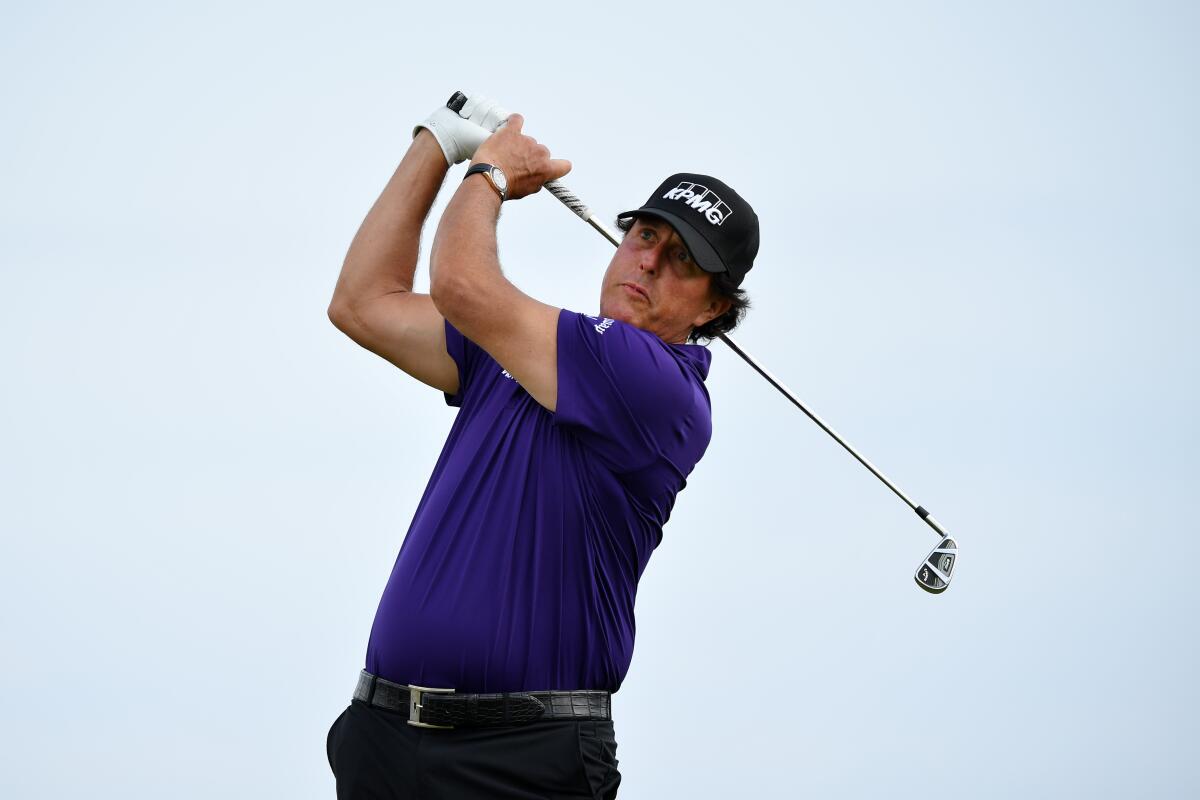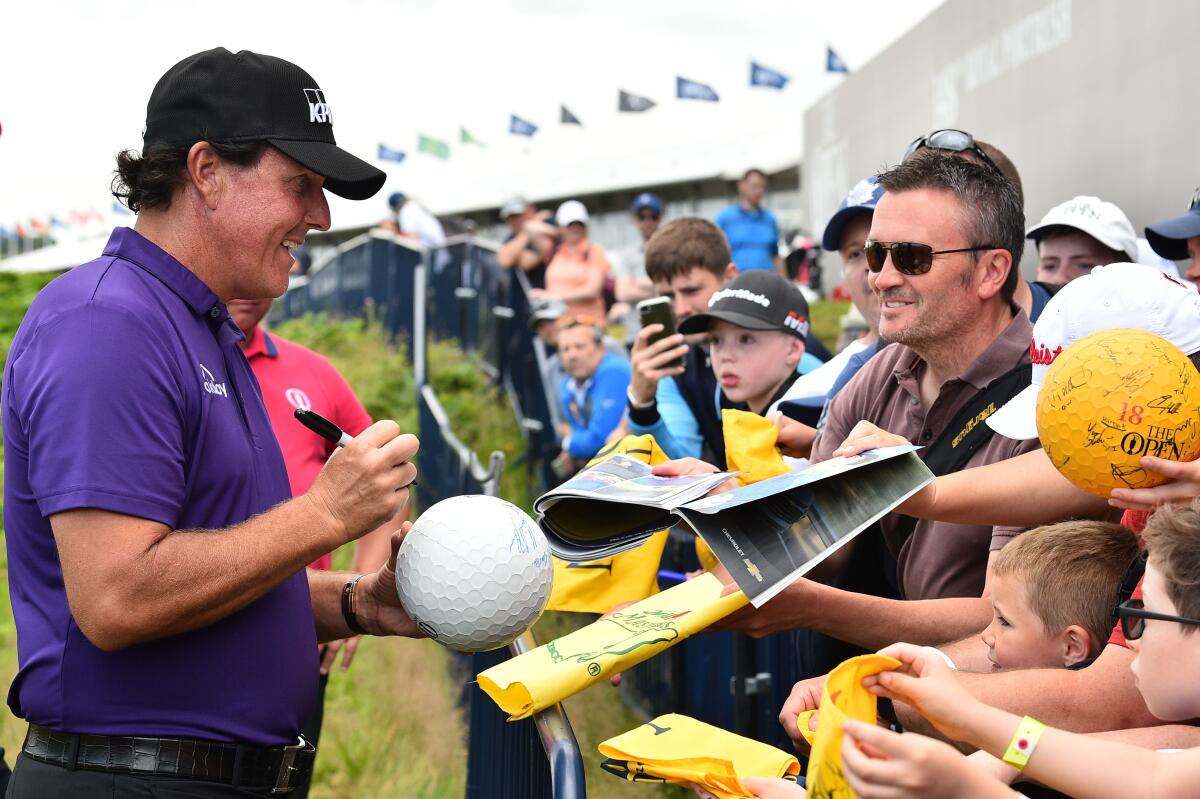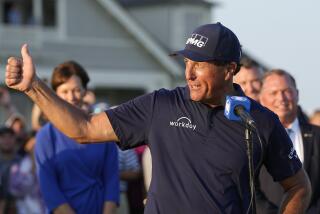British Open: Phil Mickelson gets himself and his game in shape

- Share via
PORTRUSH, Northern Ireland — Phil Mickelson has been fixated on his swing lately, but not the one that won him 44 tournaments over the course of his illustrious golf career.
It’s a different kind of swing, his abrupt transition to healthy eating — a diet many people would consider extreme — that has been his focus.
By all appearances, Mickelson is as trim and in shape as he’s been in years, having dropped 15 pounds recently after fasting for six days over a 10-day stretch. No food, only water and coffee.
“Just not happy with the way I’ve been the last few months,” he said while walking several holes of Royal Portrush with a pair of reporters during a practice round before this week’s British Open. “I haven’t been at my best mentally, physically, so I’m trying to control the things I can control.”
Mickelson, 49, was recognized by tournament officials Tuesday for a remarkable feat: He’s spent the past 25 years inside the world’s top 50, with his ranking never dipping lower than that.
He was a three-time Masters champion during that span, as well as winning the PGA Championship in 2005 and the British Open in 2013.
Although he won the AT&T Pebble Beach Pro-Am in February, he wasn’t in contention in the year’s first three major championships: the Masters (tied for 18th), PGA Championship (tied for 71st), and U.S. Open (tied for 52nd).
If not for his love of the British Open — also known as The Open Championship — Mickelson said he would have stayed home in San Diego to rest and work on his game.
“It’s kind of a spiritual place, a spiritual tournament,” he said. “If it was any other tournament, I’d take the week off. But I love being here; I love links golf. The fact that I’ve won this tournament relieves any pressure of trying to think about the results. Because I want to enjoy the experience.”
That said, he didn’t feel particularly good physically until he began his new eating and workout regimen earlier this year.
Asked if that has helped him on the course, he said, “Absolutely. And when I don’t play well, I don’t feel good about myself. It hasn’t been a great place mentally, and I’m just trying to get out of it.”

That prompted the fasting, which Mickelson has read about extensively during the last two years in various scientific studies. Fasting is what made the most sense to him, although there’s no shortage of opinions on what’s the most healthy path to take.
“One thing that resonated with me was a quote that said everything you eat is either causing disease or helping your body fight disease,” he said.
Mickelson said his diet these days consists almost exclusively of fruits, vegetables, nuts, seeds, and a special blend of coffee mixed with witch’s brew of herbs, oils and proteins.
“I’ll put a lot of ingredients in that help with overall body healing,” he said. “MCT oil for brain function, sea salt for overall energy, manuka honey for allergies and good bacteria, cinnamon for inflammation. It’s about getting the right ratio in the right coffee.”
During his fasts, water and fortified coffee were all he consumed.
“I was doing morning yoga on the beach, going for hikes down on the beaches in Hawaii, doing stuff with family,” he said. “I came home and just kept it going. After three days, I didn’t crave food. I had plenty of energy.”
Sign up for our daily sports newsletter >>
He said he’s calmer, less agitated, and has more self-esteem these days.
“I don’t know what I’ll do in the future,” he said about his eating habits. “But I’ll certainly add one- or two-day fasts either weekly or biweekly, just because the studies show how it helps your body heal.”
When he wants a snack now, he said, he’ll satisfy his appetite with a handful of olives and a few cherry tomatoes.
“It’s a lifestyle change,” he said. “Losing weight was just a byproduct.”
More to Read
Go beyond the scoreboard
Get the latest on L.A.'s teams in the daily Sports Report newsletter.
You may occasionally receive promotional content from the Los Angeles Times.











